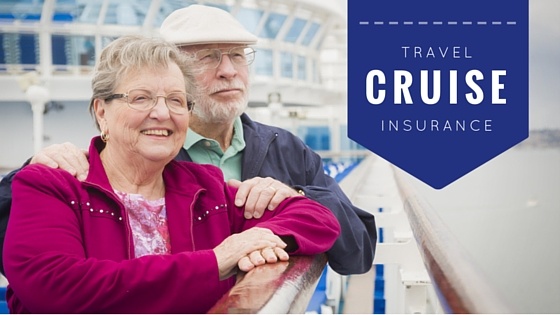
You've worked your socks off for this cruise. You've put in long hours, stored your vacation time and adhered to a strict budget. A well-planned cruise is something to be proud of, so when the time comes to embark sit back and enjoy the fruits of your labor.
As long as no kinks are thrown into the plan.
When you work this hard throughout the year, the last thing you expect is a trip cancellation, or worse — a medical emergency. But these circumstances can arise and, as many travelers who have experienced them will tell you, it is always a good idea to buy travel insurance for a cruise.
Download our free hurricane warning benefit guide here.
So, how do you do it? How do you find the best cruise insurance for your trip? Well, read more for some insight.
How to Find the Best Travel Insurance for Your Cruise
1. Know the different kinds of policies available
Primary or secondary? Supplier or third-party provider? Those are all terms you may come across when planning a cruise. Be sure to clarify which type of policy you are buying, what the differences are and which offers more comprehensive coverage.
Primary
Think of primary travel insurance as the extrovert. They are the person to show up early and they are the last to leave. This policy is a real people person, the kind that likes to make sure everything is set up smoothly and ends well. They'll even help with clean up after the party is over!
A primary travel insurance policy will start on the effective date of coverage and end when your trip does. Your primary policy will also be the first company you go to when filing a claim. Even if you have coverage through your normal health care provider, primary plans will cover your medical expenses. A good plan won't have a deductible either.
Secondary
Think of secondary travel insurance policy as the introvert, the person who shows up late and leaves when the first opportunity arises. Sure, they will help clean up messes along the way, but only after you've checked your other resources.
A secondary policy will have your back but you first have to try and collect on any private insurance policies or cruise line refunds before the trip. Sometimes, there is even a deductible for medical expenses and you even have to make an attempt to go through your health insurance provider, even if you know they don't cover you abroad.
Supplier
A supplier plan is one offered by the cruise line or tour operator. It would be purchased from them and insure the trip that is being taken with them.
There are a few issues with this, however. Cruise lines cannot insure against their own bankruptcy or default and often times can only provide future discounts or credits instead of claims that are paid in cash.
Read a full article on Supplier and Third Party Travel Insurance here.
Third-Party Provider
A third party provider is not affiliated with the cruise line or tour operator. For instance, someone like TravelSafe. The policies tend to have broader coverage, higher benefit limits, and offer cash-back benefits. That's an all around win.
2. Make sure key benefits are included
When you quote cruise insurance, you should look for policies that offer inclusive coverage. À la carte policies appear to have a lower cost because they allow you to pick and choose your benefits. This can cost you in the end.
When shopping à la carte policies, cruisers are more likely to bypass plans with Primary Medical and Emergency Assistance in hopes of saving a few dollars. You don't think medical evacuation coverage is necessary, that is until you need a medical evacuation.
3. Purchase your policy when the first deposit is paid
You should quote cruise insurance while you are in the process of planning your trip. This will allow you to anticipate the costs upfront and include them in the overall budget. Purchase the insurance when you are ready to make the first trip deposit.
Many travel insurance policies have time sensitive provisions. Those same provisions can limit coverage for pre-existing conditions, the bankruptcy of a cruise line and cancel for any reason. Pay attention to the time constraints during the booking process and you will have more luck maximizing your coverage.
4. Know what's not covered ahead of time
You know what they say about those who make assumptions. Like most things in life, it is never good to assume — especially when it comes to an insurance policy. But then why do we still see this happen regularly during the claims process?
Many times we will receive a call from a traveler who assumed their claim would be covered. Learn about the limits of the different policies before purchasing one. It will save you a massive headache in the future.
